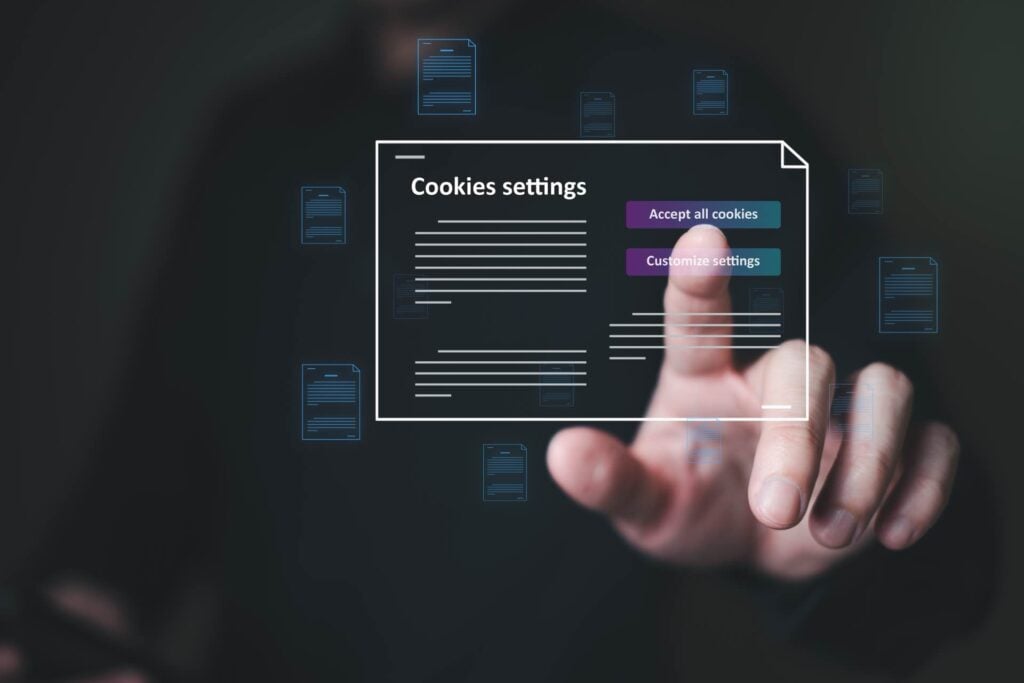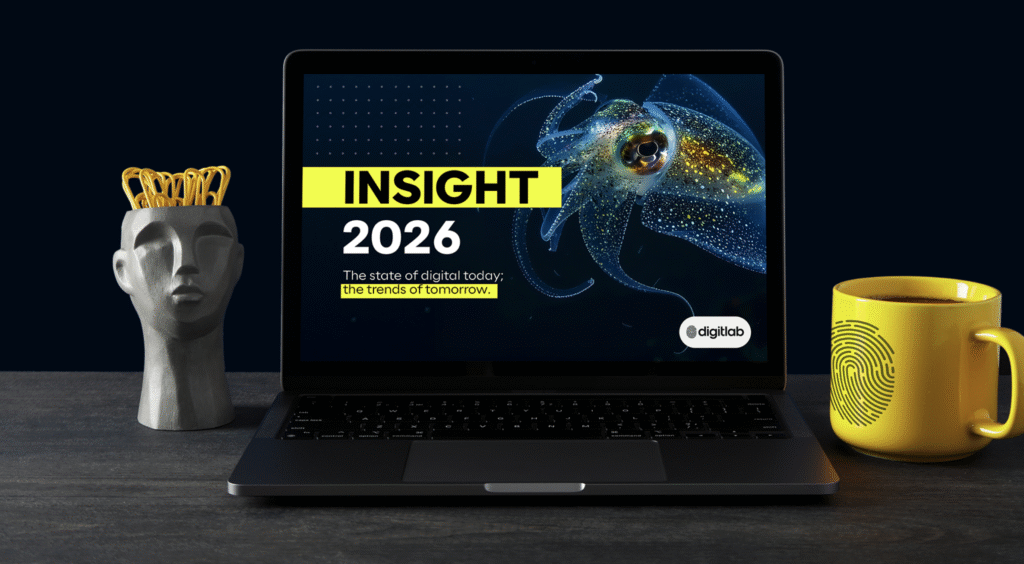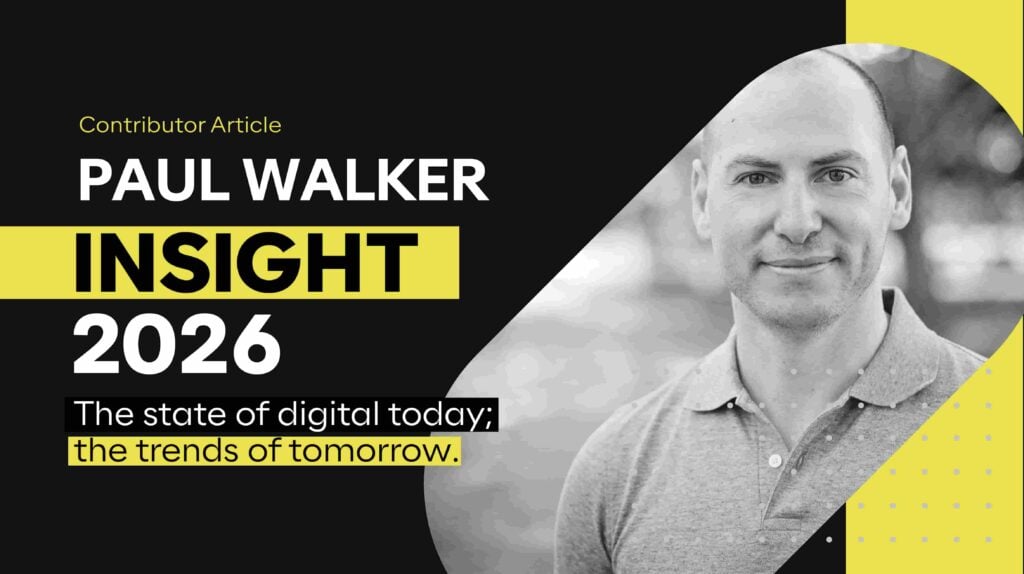Mastering Marketing Automation and Lead Generation
Cut through marketing clutter like a scalpel through silk
If you’re in business today, it’s time to buckle up. Today’s digital landscape is a whirling dervish. A living, breathing ecosystem, where businesses, consumers, and technology intertwine in an endless dance of innovation.
Picture it —skyscrapers of data towering over streets filled with AI-driven interactions, while social media highways pulse with the rapid exchange of ideas. Algorithms act as invisible architects, shaping personalised experiences, while automation serves as the unseen force that powers efficiency behind the scenes. In this pulsing, interconnected world, content is the currency, engagement is the fuel, and attention spans are the most valuable commodity.
So, business brands. Our job is to navigate a restless terrain of search engine updates, shifting consumer behaviours, and emerging technologies like AI, blockchain, and the metaverse. We who embrace adaptability, creativity, and data-driven decision-making don’t just survive—we thrive!
Here, the only constant is change, and the key to success is to float like a butterfly, just ahead of the curve.
This means not just practicing, but mastering marketing automation.
But what exactly is marketing automation, and how does it impact lead generation?
Let’s go back to basics and explore the fundamentals of marketing automation, the benefits, and the various lead generation processes that businesses can implement to attract and nurture those ready-to-buy, looking-for-you, long-lost-brother-from-another-mother, high-quality leads.
What Is Marketing Automation?
Marketing automation refers to the use of technology and software to automate repetitive marketing tasks, allowing businesses to nurture leads and convert them into customers more efficiently. This includes automating email campaigns, social media posts, lead scoring, customer segmentation, and more.
The goal of automated marketing is to enhance efficiency, personalise your interactions, and ensure that leads move seamlessly through the sales funnel with minimal manual intervention. Using AI-driven tools and data analytics, businesses can engage prospects at the right time with the right message—ultimately driving higher conversion rates.
Benefits of Marketing Automation
Marketing automation provides numerous advantages for businesses looking to optimize their marketing efforts. Here are some of the key benefits:
Increased Efficiency
Automating repetitive tasks like email follow-ups, social media scheduling, and lead scoring frees up valuable time for marketing teams to focus on strategy and creativity.
Improved Lead Nurturing
With marketing automation, businesses can send targeted, personalised messages based on customer behaviour and preferences, increasing the chances of conversion.
Better Data Management & Analytics
Automation tools collect and analyse data to provide insights into customer behaviour, campaign performance, and ROI, allowing businesses to make data-driven decisions.
Enhanced Customer Experience
By delivering the right information, at the right time, businesses can create seamless and engaging customer journeys, improving overall satisfaction and loyalty.
Higher Conversion Rates
By automating lead segmentation, businesses can focus their efforts on the most qualified leads, resulting in better conversion rates.
Great, so now that we understand why automating your marketing is good, let’s dive into the various lead generation processes that can be automated to maximize marketing efforts.
Lead Generation Processes in Marketing Automation
Lead generation is the courting part – attracting and nurturing potential customers. Marketing automation plays a crucial role in optimising these efforts.
Below are some of the most effective automated lead-generation strategies:
Email Marketing Automation
Email remains one of the most powerful channels for lead generation. With automation, businesses can create personalised email sequences that nurture leads at every stage of the buyer’s journey.
Automated email strategies include:
- Welcome emails – Sent automatically to new subscribers or leads.
- Drip campaigns – A series of pre-scheduled emails designed to educate and nurture prospects.
- Behaviour-triggered emails – Emails sent based on user actions, such as downloading a whitepaper or visiting a pricing page.
- Re-engagement campaigns – Designed to win back inactive leads and encourage further engagement.
See also: Transactional Emails – The Postman Pat of Email Marketing
Website and Landing Page Automation
A well-optimised website can capture leads seamlessly using automation tools. Businesses can implement lead capture forms, chatbots, and dynamic content to engage visitors.
Automated website strategies include:
- Pop-ups and exit-intent forms – Triggered when a visitor is about to leave the page.
- AI-powered chatbots – Engage visitors, answer common queries, and capture lead details.
- Personalised content – Display different offers or messages based on visitor behaviours.
Social Media Automation
Social media platforms are essential for reaching potential leads. Marketing automation tools help businesses schedule posts, track engagement, and manage interactions efficiently.
Automated social media strategies include:
- Scheduled posts – Consistently post content across platforms.
- Social listening tools – Monitor brand mentions and industry trends.
- Chatbots for messaging apps – Automate responses and guide users to valuable resources.
Lead Scoring and Segmentation
Not all leads are equal. Lead scoring assigns values to leads based on their behaviours, engagement level, and demographics, helping sales teams prioritise high-quality leads.
Lead segmentation, on the other hand, groups prospects based on criteria such as industry, company size, or interaction history. This allows businesses to send more targeted and relevant marketing messages.
Content Marketing and Automated Lead Magnets
Content is a critical driver of lead generation. Automated systems can deliver relevant content to potential leads at the right time, increasing engagement.
Common automated content strategies include:
- Gated content – Whitepapers, eBooks, and case studies that require an email and other contact information.
- AI-driven content recommendations – Suggest relevant blog posts or videos based on user behaviours.
- Webinar and event automation – Send automated reminders and follow-up emails to attendees.
Paid Advertising and Retargeting Automation
Automated advertising ensures businesses reach their ideal audience with precision. Platforms like Google Ads and Facebook Ads allow AI-driven ad placement and audience targeting.
Automated ad strategies include:
- Retargeting ads – Show ads to users who have visited your website but haven’t converted.
- Lookalike audience targeting – Identify new leads similar to your existing customers.
- A/B testing automation – Optimise ads by testing different versions automatically.
CRM and Sales Automation
Marketing automation tools integrate with Customer Relationship Management (CRM) systems, ensuring a seamless transition of leads from marketing to sales teams.
Automated CRM strategies include:
- Automated follow-up reminders for sales teams.
- Lead tracking and pipeline management.
- Automated proposal and contract generation.
Choosing the Right Marketing Automation Tools
To implement marketing automation effectively, businesses need to choose the right tools. Some of the most popular marketing automation platforms include:
HubSpot – All-in-one marketing, sales, and CRM automation.
Mailchimp – Great for small businesses.
Lemlist – Multi-channel Linkedin and Email Sales Enablement at Scale
Each tool comes with unique features tailored to different business needs, so it’s essential to evaluate which ones align best with your goals. A digital agency like Digitlab can help you to create your playbook of different tools at various levels, to optimise your unique marketing automation and lead generation needs.
The Future of Marketing Automation
Marketing automation is no longer a luxury—it’s a necessity for businesses looking to streamline lead generation, improve customer engagement, and increase revenue. By leveraging automation in email marketing, social media, lead scoring, and content marketing, companies can nurture leads effectively and drive more conversions.
For business owners and marketing managers, investing in automation is a game-changer. As AI and machine learning evolve, marketing automation will become even more sophisticated—offering businesses unprecedented opportunities to personalise and optimise their marketing efforts.
As we said earlier, floating ahead of the curve is the opportunity to stand out and thrive, as well as survive, in business.
Are you ready to automate your marketing strategy? Start by identifying key areas where automation can drive the most value and choose the right tools to get started.
Would you like help selecting and implementing the best marketing automation platforms for your business?





